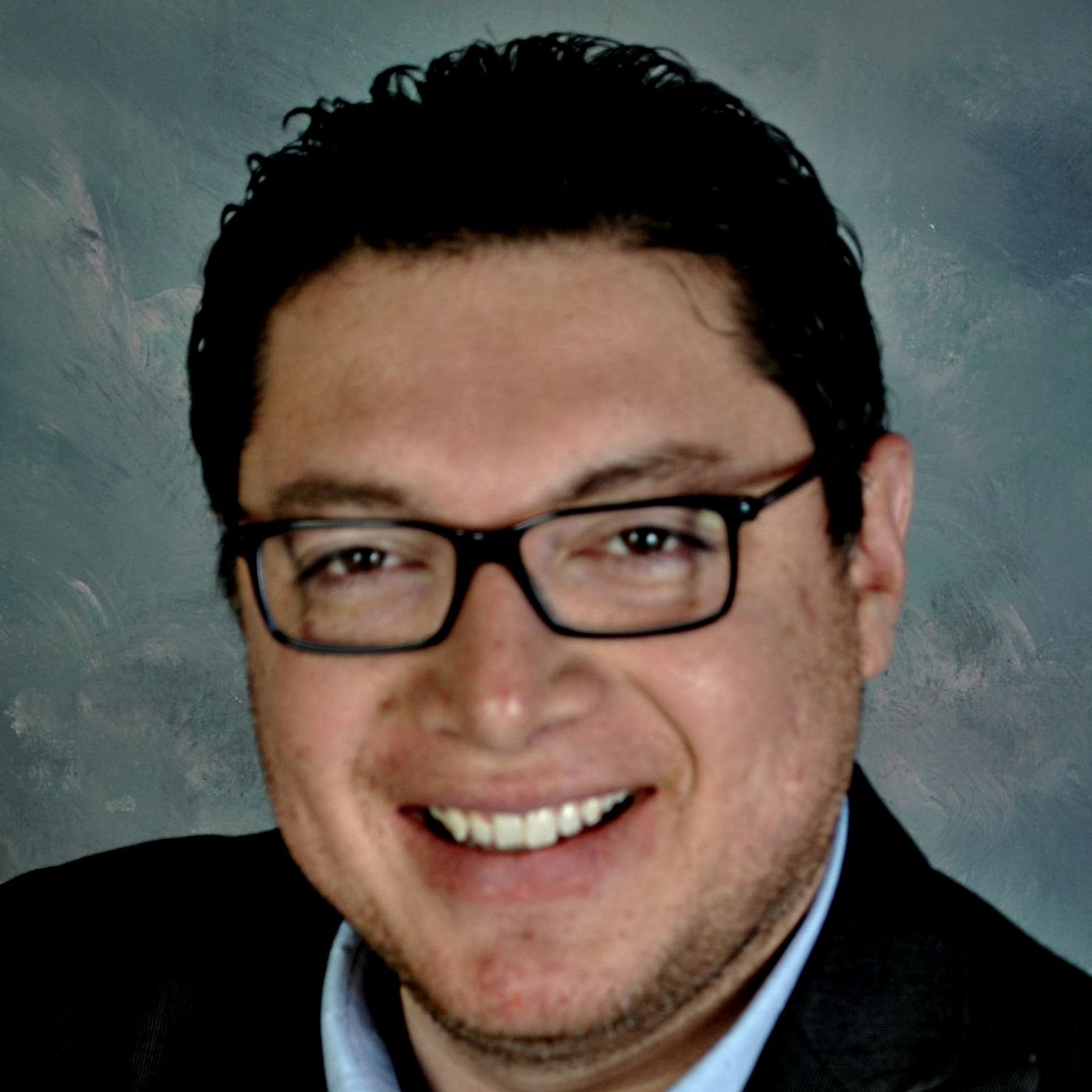Discover The Community Podcast
The Community Podcast

The Community Podcast
Author: Herb Williams
Subscribed: 1Played: 70Subscribe
Share
© Herb Williams
Description
“We are stronger when we listen, and smarter when we share.~ Rania Al-Abdullah“Listening to podcast, reading a book, listening to an aduibook and watching films isn't a waste of time. It's how somebody becomes wise!”― Deyth Banger
97 Episodes
Reverse
The Law, a work written by the French political philosopher and economist Frederic Bastiat in 1850, investigates what happens in a society when the law becomes a weapon used by those in power to control and enslave the population.
What is the Purpose of Law?
Laws should be set to prevent certain actions which harm individuals and their property. It should not be used to compel or force people to act in a certain way.
Bastiat says, “When law and force keep a person within the bounds of justice, they impose nothing but a mere negation. They oblige him only to abstain from harming others. They violate neither his personality, his liberty, nor his property. They safeguard all these. . . But when the law, by means of its necessary agent ,force, imposes upon men a regulation of labour, a method or a subject of education, a religious faith or creed — then the law is no longer negative; it acts positively upon people.”
Since individuals are not allowed to force individuals to behave in certain ways, groups of individuals (governments, organizations, corporations) also should not be allowed by law to force individuals to act in certain ways.
“Since no individual acting separately can lawfully use force to destroy the rights of others, does it not logically follow that the same principle also applies to the common force that is nothing more than the organized combination of the individual forces?” “If this is true, then nothing can be more evident than this: The law is the organization of the natural right of lawful defense. It is the substitution of a common force for individual forces. And this common force is to do only what the individual forces have a natural and lawful right to do: to protect persons, liberties, and properties; to maintain the right of each, and to cause justice to reign over all.
Legalized Plunder: The Dangers that Occur when those in Power use the Law as a Weapon of Force
“The law perverted! And the police powers of the state perverted along with it! The law, I say, not only turned from its proper purpose but made to follow an entirely contrary purpose! The law become the weapon of every kind of greed! Instead of checking crime, the law itself guilty of the evils it is supposed to punish!”
One of the main ways in which those in power use the law as a weapon of force is through ‘legalized plunder’. One of the most accepted and prevalent forms of legalized plunder is taxation.
“When a portion of wealth is transferred from the person who owns it – without his consent and without compensation, and whether by force or by fraud – to anyone who does not own it, then I say that property is violated; that an act of plunder is committed. I say that this act is exactly what the law is supposed to suppress, always and everywhere. When the law itself commits this act that it is supposed to suppress, I say that plunder is still committed. . .”
“. . .when the plunder is abetted by the law, it does not fear your courts, your gendarmes [police], and your prisons. Rather, it may call upon them for help.”
The Spread of Legalized Plunder
Legalized plunder has been so prevalent throughout history because often groups who are initially the victim of legalized plunder try to gain power not to put an end to it, but so they can use the law to take the property of others.
“Men naturally rebel against the injustice of which they are victims. Thus, when plunder is organized by law for the profit of those who make the law, all the plundered classes try somehow to enter – by peaceful or revolutionary means – into the making of laws.” (
Why do those in Power use the Law to take the property of others? (perform legalized plunder) Greed: Reason #1
Bastiat believed that many in power use the law to commit “legalized plunder” because of pure greed. It is easier to take wealth from others instead of working to gain wealth.
“Now since man is naturally inclined to avoid pain – and since labor is pain in itself – it follows t
Take The Anti-Semitism Survey http://bit.ly/2qfnG6W
The Anti-Defamation League published a broad survey of worldwide anti-Semitism in 2015, that it conducted among 50,000 people from 100 countries. The results show that one-quarter of the world is anti-Semitic. Fifty percent of Muslims, a quarter of Christians and even a fair number of Buddhists were found to be anti-Semitic on the basis of the survey. Now in 2018 things have only gotten worse.
Some people with Parkinson’s disease find that using cannabis products helps to ease certain symptoms, according to results from a survey. “These survey results offer a broad overview of real-world cannabis use patterns and experience among a large group of people living with [Parkinson’s] and provide initial results regarding the differential symptomatic effects of different cannabis products, researchers wrote.
Some people with Parkinson’s disease find that using cannabis products helps to ease certain symptoms, according to results from a survey. These survey results offer a broad overview of real-world cannabis use patterns and experience among a large group of people living with Parkinson’s and provide initial results regarding the differential symptomatic effects of different cannabis products, researchers wrote.
What are the five biggest problems facing black Americans? Where do things like racism and police brutality rank? What about the absence of black fathers? Taleeb Starkes, author of Amazon #1 bestseller "Black Lies Matter," lists the five. They may surprise you.
Why Study History? Victor Davis Hanson Is it important to study history? Why do we need to know what’s come before us? Isn’t it enough to just “live in the moment?” Renowned historian Victor Davis Hanson explores these important questions.
3 Moral Issues About AbortionMichael W. Austin PhD Let's not touch on the question that most preoccupies discussion of the subject -- whether abortion should be legal or illegal. But let's talk in an unemotional way. The only question here is the moral one: Is ending the life of a human fetus -- moral? Let's begin with this question: Does the human fetus have any value and any rights? Now, it's a scientific fact that a human fetus is human life. Those who argue that the human fetus has no rights say that a fetus is not a person. But even if you believe that, it doesn't mean the fetus has no intrinsic value or no rights. There are many living beings that are not persons that have both value and rights: Dogs and other animals, for example. And that's Moral Argument Number One: A living being doesn't have to be a person in order to have intrinsic moral value and rights. When challenged with this argument, people usually change the subject to the rights of the mother -- meaning the right of a mother to end her fetus's life under any circumstance, for any reason, and at any time in her pregnancy. Is that moral? It is only if we believe that the human fetus has no intrinsic worth. But in most cases, nearl everyone believes that the human fetus has essentially infinite worth and an almost absolute right to live. When? When a pregnant woman wants to give birth. Then, society -- and its laws -- regard the fetus as so valuable that if someone were to kill that fetus, that person could be prosecuted for homicide. Only if a pregnant woman doesn't want to give birth, do many people regard the fetus as worthless. Now, does that make sense? It doesn't seem to. Either a human fetus has worth or it doesn't. And this is Moral Argument Number Two: On what moral grounds does the mother alone decide a fetus's worth? We certainly don't do that with regard to a newborn child. It is society, not the mother -- or the father -- that determines whether a newborn child has worth and a right to live. So, the question is: Why should that be different before the human being is born? Why does one person, a mother, get to determine whether that being has any right to live? People respond by saying that a woman has the right to "control her body. " Now, that is entirely correct. The problem here, however, is that the fetus is not "her body;" it is in her body. It is a separate body. And that's Moral Argument Number Three. No one ever asks a pregnant woman, "How's your body? " when asking about the fetus. People ask, "How is the baby? "The Abortion DebateThere is much confusion in the abortion debate. The existence of a heartbeat is not enough, on its own, to confer a right to life. On this, I believe many pro-lifers are mistaken. But on the pro-choice side, is it ethical to abort fetuses as a way to select the gender of one's child,or instance? We should not focus solely on the fetus, of course, but also on the interests of the mother, father, and society as a whole. Many believe that in order to achieve this goal, we need to provide much greater support to women who may want to ive birth and raise their children, but choose not to for financial, psychoogical, health, or relationship reasons; that adoption should be much less expensive, so that it is a live option for more qualified parents; and that quality health care should be accessible to all. I fear, however, that one thing that gets lost in all of the dialogue, debate, and rhetoric surrounding the abortion issue is the nature of the human fetus. This is certainly not the only issue. But it is crucial to determining the morality of abortion, one way or the other. People on both sides of the debate would do well to build their views with this in mind.
Slavery and The PlantationSugar plantation in the British colony of Antigua, 1823Planters embraced the use of slaves mainly because indentured labor became expensive. Some indentured servants were also leaving to start their own farms as land was widely available. Colonists tried to use Native Americans for labor, but they were susceptible to European diseases and died in large numbers. The plantation owners then turned to enslaved Africans for labor. In 1665, there were fewer than 500 Africans in Virginia but by 1750, 85 percent of the 235,000 slaves lived in the Southern colonies, Virginia included. Africans made up 40 percent of the South’s population.According to the 1840 United States Census, one out of every four families in Virginia owned slaves. There were over 100 plantation owners who owned over 100 slaves.The number of slaves in the 15 States was just shy of 4 million in a total population 12.4 million and the percentage was 32% of the population.Number of slaves in the Lower South: 2,312,352 (47% of total population) 4,919 million.Number of slaves in the Upper South: 1,208,758 (29% of total population) 4,165 million.Number of slaves in the Border States: 432,586 (13% of total population) 3,323 million.Fewer than one-third of Southern families owned slaves at the peak of slavery prior to the Civil War. In Mississippi and South Carolina the figure approached one half. The total number of slave owners was 385,000 (including, in Louisiana, some free African Americans), amounting to approximately 3.8% of the Southern and Border states population.Tobacco fieldOn a plantation with more than 100 slaves, the capital value of the slaves was greater than the capital value of the land and farming implements. The first plantations occurred in the Caribbean islands, particularly, in the West Indies on the island of Hispaniola, where it was initiated by the Spaniards in the early 16th century. The plantation system was based on slave labor and it was marked by inhumane methods of exploitation. After being established in the Caribbean islands, the plantation system spread during the 16th, 17th and 18th centuries to European colonies in the Americas and Asia. All the plantation system had a form of slavery in its establishment, slaves were initially forced to be labors to the plantation system, these slaves were primarily native Indians, but the system was later extended to include slaves shipped from Africa. Indeed, the progress of the plantation system was accompanied by the rapid growth of the slave trade. The plantation system peaked in the first half of the 18th century, but later on, during the middle of 19th century, there was a significant increase in demand for cotton from European countries, which means there was a need for expanding the plantation in the southern parts of United States. This made the plantation system reach a profound crisis, until it was changed from being forcing slave labour to being mainly low-paid wage labors who contained a smaller proportion of forced labour. The monopolies were insured high profits from the sale of plantation products by having cheap labours, forced recruitment, peonage and debt servitude.
Liberal euphemisms are an attempt to use politically correct terminology in place of more accurate descriptions. By using euphemisms favorable to their worldview, liberals are able to steer an argument or debate in their favor, even when they advocate for what would otherwise be an unpopular or indefensible position.
A list of parenting quotes for smart parenting styles.From encouraging schoolwork and sports to modeling values as a child grows (remember, they do as you do, not as you say!) parents exert enormous influence over their children's lives. They are, however, not the only on-the-ground influencers—especially after children enter school and begin interacting with the world at large.Most parents work to give children the best start possible, but it's also important for parents to recognize that kids come into the world with their own temperaments, personalities, and goals. While parents may want to push their child down a certain path, a parents' job is to provide an interface with the world that ultimately prepares a child for complete independence and the ab Spoken by my virtual assistant ility to pursue whatever path they choose.In a rapidly changing world, parenting can be subject to fads and changing styles, and parenting in some privileged circles has become a competitive sport. But the needs of child development as delineated by science remain relatively stable: safety, structure, support, and love.I have consolidated a group of quotes focusing on how to parent in 2021. I hope you learn and sometimes laugh.
Joyce FieldsBorn in Detroit, Michigan, in 1944, Joyce now resides in Arcadia, California. Shestarted her career in 1962 as a stenographer. Joyce and her husband weremarried on June 3, 1967. They have been together for more than 63 years--sincethey were both 13 years old. They have two grown sons, eight grandchildren,four great-grandchildren. Joyce is the author of 10 books, and she is also aprofessional proofreader. Her mission statement is: "I write books that inspirepeople on their journey to make the world a better place."Her books are available at GoodShortBooks.com and Amazon.com.
When young Gerald McGrew visits the zoo, he discovers that the exotic animals are "not good enough." He says that if he ran the zoo, he would set all of the current animals free and find new, more bizarre and exotic ones. Throughout the book he lists these creatures, starting with a lion with ten feet and escalating to more imaginative (and imaginary) creatures, such as the Fizza-ma-Wizza-ma-Dill, "the world's biggest bird from the island of Gwark, who eats only pine trees, and spits out the bark."The BOOKThe illustrations also grow wilder as McGrew imagines going to increasingly remote and exotic habitats, capturing each fanciful creature, and bringing them all back to a zoo now filled with his new wild animals. He also imagines the praise he receives from others, who are amazed at his "new Zoo, McGrew Zoo".
Why is it so hard for so many parents and teachers to get kids to do as they are told? Because too many adults have followed some very bad advice. Family psychologist John Rosemond offers some useful tips on how to get the little barbarians to listen.
Leke BalibolaLeke is the founder of SignTech Paperless Solutions, an innovative Digital Transformation technology andservice delivery company.Leke has worked extensively with organisations of varying sizes and in many industries where he has deliveredDigital Transformation programmes, projects, technology and coaching. This has helped reduce costs whilstmaking them more environmentally friendly and has successfully delivered programmes in a wide variety of industries from engineering to banking.During the COVID19 pandemic Leke has been instrumental in ensuring people and companies can easily work remotely from home by introducing a fully integrated digital office solution connecting staff with each other and clients.#herbw79 #ourtownlife.net
Submitted by PragerUIsrael, officially known as the State of Israel, is a country in Western Asia. It is situated on the southeastern shore of the Mediterranean Sea and the northern shore of the Red Sea, and shares borders with Lebanon to the north, Syria to the northeast, Jordan on the east, the Palestinian territories of the West Bank and the Gaza Strip to the east and west, respectively, and Egypt to the southwest.
Contributed by PrageUCapitalism is an economic system based on the private ownership of the means of production and their operation for profit. Central characteristics of capitalism include capital accumulation, competitive markets, a price system, private property and the recognition of property rights, voluntary exchange and wage labor. #herbw79
AntisemitismAntisemitism is hostility to, prejudice, or discrimination against Jews. A person who holds such positions is called an antisemite. Antisemitism is generally considered to be a form of racism.
Giovanni GonzalezAn Authority on Leadership Development and an Expert in creating high performing teams. Born in Colombia, lived in Belize and currently resides in Atlanta, GA, USA. As an immigrant, Giovanni sold newspapers at traffic lights, washed dishes in restaurants, was a driver, and now he is the founder and CEO of Mindful Performance Blueprint (MPB) and the creator of the 3-day leadership course Access the Leader Within.For over 12 years, Giovanni has been mentoring business leaders, community leaders, & entrepreneurs to elevate their capacity to positively influence others and create high-performing teams around them.His work has ranged from working with companies that have over 20,000 employees on how to create a high-performing culture to working with companies that have a team of 5 individuals committed to making a difference and leaving a legacy.He has helped dozens of entrepreneurs and business leaders grow from 5 figures to 6 figures and from 6 figures to 7 figures and many businesses double and triple their revenues by accessing and leveraging the pool of talent that they already have within their teams.His specialty is to align teams to create an environment for breakthrough thinking and deliver breakthrough results.
Sanjay Sehgal has been the Chairman, and CEO of the MSys Group, MSys Technologies since 2007. MSys Technologies is one of the most consistent and trusted companies for its product engineering services, and digital transformation projects for its ISV and Enterprise clientele. Sanjay is a global leader who carries the vision to deliver the best in IT services and automation software.Sanjay Sehgal has been honored with numerous awards. He was recognized as the “Most Innovative Digital Transformation CEO” in 2019. He was also honored with The TiE Atlanta Top Entrepreneur Award 2018. He was invited to speak at the Web2.0 Summit Leadership in 2019.Sanjay Sehgal is a compulsive entrepreneur and a heartful businessman. He has successfully led and acquired tech companies like Clogeny, DigiFutura, Mobinius. He has been featured in and interviewed by several media networks and publications such as Forbes, Dark Reading, IDG, Network World, PC World, Tech Crunch, Atlanta Business Chronicle, and many more.His thoughts and ideas have been published in the Heartfulness Magazine on “What Lies Beyond Corona.”Sanjay is the best motivational, tech, and keynote speaker. He spoke at several conferences on various subjects and themes including storages, servers, gaming, and web. He was also a part of the panel discussion on consciousness shift in global leadership at the Impact of Leadership 21 Conference held in The United Nations Plaza in New YorkSanjay Sehgal is on the Board of Advisors of the prestigious Audisankara Group of Institutions at Nellore, India. Board of Trustees of Heartfulness Education Trust and Shanti Kunj Constructions. He is an angel investor, advisor, and board member for various technology start-ups in Artificial intelligence, Machine Learning, and Blockchain technologies.Sanjay indulges in his avid passion for philanthropy through Heartfulness a global non-profit organization. He manages global digital initiatives and he also practices and teaches Heartfulness meditation for free to thousands in Alpharetta. He lives here with his family, and at the Kanha Shanti Vanam Ashram in Hyderabad during his regular visit.Sanjay is a self-development enthusiast, humanitarian, and someone who works every day to create a real impact on human lives. He is one of the most inspiring and motivational influencers, who can communicate through his stories on overcoming obstacles, perseverance and how to deal with life’s challenges.
Dan JourdanAffecctionatly know as THE DEEJ, by his friends, associates and cusrtomersDan has had an exciting and varied career coming from a butcher shop at 18 to currently a nationally renowned business consulantHe says The foundation of his business is based on the concept of Fractional Sales Consulting. He designs a customized plan for every business he works with to help you meet your financial goals. His clients have a deep desire to grow their businesses, and usually do not have the foundational sales processes needed to make that happen in a consistent, measurable way. Keep listening, The Deej has a dirty little secret to share with us on How to sell your business.























